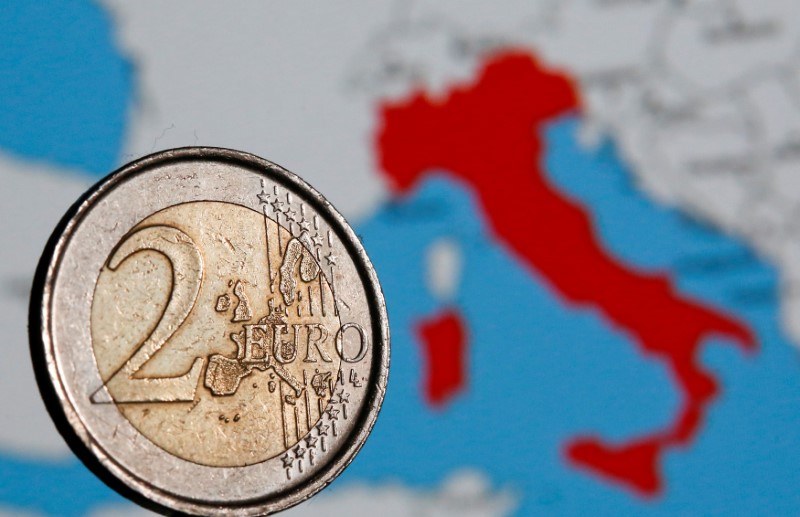By Geoffrey Smith
Investing.com -- Italy’s banks bore the brunt of its latest political crisis early Friday, falling by between 2.2% and 6.5% as the euro zone’s third-largest economy lurched towards new elections.
The FTSE MIB, predictably, led European markets lower, falling 2.2% by 5:10 AM ET (0910 GMT). The prospect of a new, hard-right government that could reignite the smoldering dispute over the country’s – and the euro zone’s – debt and budgetary policy was also shocking enough to drag Spain’s IBEX 35 down 1.0% and Germany’s Dax down 0.6%.
The benchmark Stoxx 600, meanwhile, fell 0.4% to 373.30, on course for a weekly loss of 1.3%.
To a large degree, the reaction is a function of what is happening in the bond markets, where investors have immediately repriced Italian country risk sharply higher. That translates into a higher implied cost of capital for all Italian companies, reducing their likely return on equity. The yield on the 10-year government bond has risen 25 basis points to 1.79%, its highest since early July, while the infamous 'spread' over the equivalent German bond has widened to 235 basis points, also a six-week high.
While that’s a sharp movement, it still needs to be put in context: the spread was over 310 basis points in November last year when the current government was fighting with Brussels over its budget plans, and over 500 at the height of the euro crisis in 2011.
The movement is both logical and puzzling at the same time. Logical, because opinion polls show that new elections would probably result in a right-wing government dominated by the Lega party of Matteo Salvini, whose anti-immigrant rhetoric and rage against the EU’s constraints on Italy’s budget deficits will be sure to put the country back on a collision course with the eurozone establishment.
But puzzling because, as Oxford Economics analyst Angel Talavera pointed out via Twitter, it’s “the most telegraphed political crisis in history.” Salvini and the Lega have doubled their poll ratings since going into government as the junior partner of the 5 Stars Movement last spring, and Salvini has for months been visibly agitating for new elections to reflect that shift. Markets have had plenty of time to price in this risk, but investors have piled into Italian debt in recent weeks on the hopes of monetary policy easing from the European Central Bank, at a time when yields on many other government bonds have been plummeting below zero.
The newspaper Corriere della Sera reported on Thursday that Salvini’s preference would be for an election on October 13. If the country votes in line with current opinion polls, there is a strong chance that he could form a new government with the hard-right Fratelli d’Italia party, which is closer to the Lega’s thinking on immigration and national sovereignty. That suggests that a new government could be formed – at least by Italian standards – relatively quickly,
With the U.K. on course to leave the EU at the end of October in a disorderly manner, the European Union could be facing two separate and potent threats to its economic and political cohesion at the same time. And this at a time when the euro zone economy is fast going into reverse under the influence of the U.S.-China trade conflict: Germany, France and the Netherlands all produced dismal industrial production figures for June this week.
While the history of the EU suggests that it will, ultimately, rise to those challenges, the short-term uncertainty looks highly likely to weigh on all European assets in the meantime.
